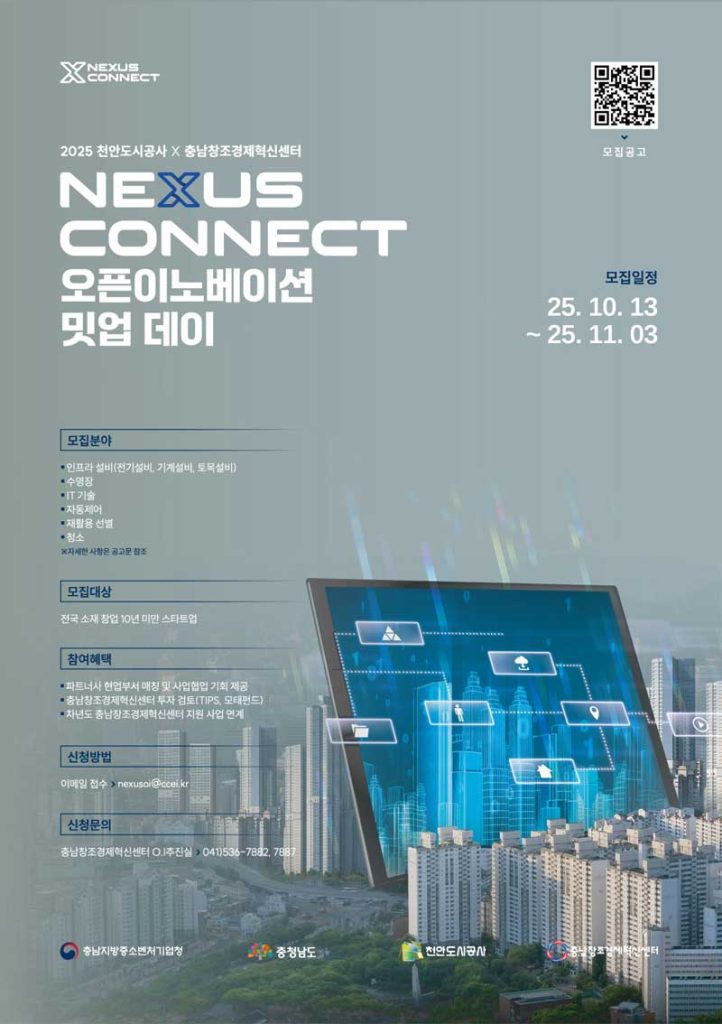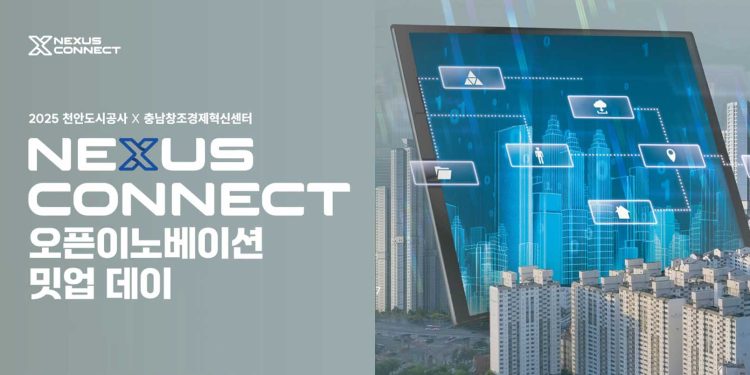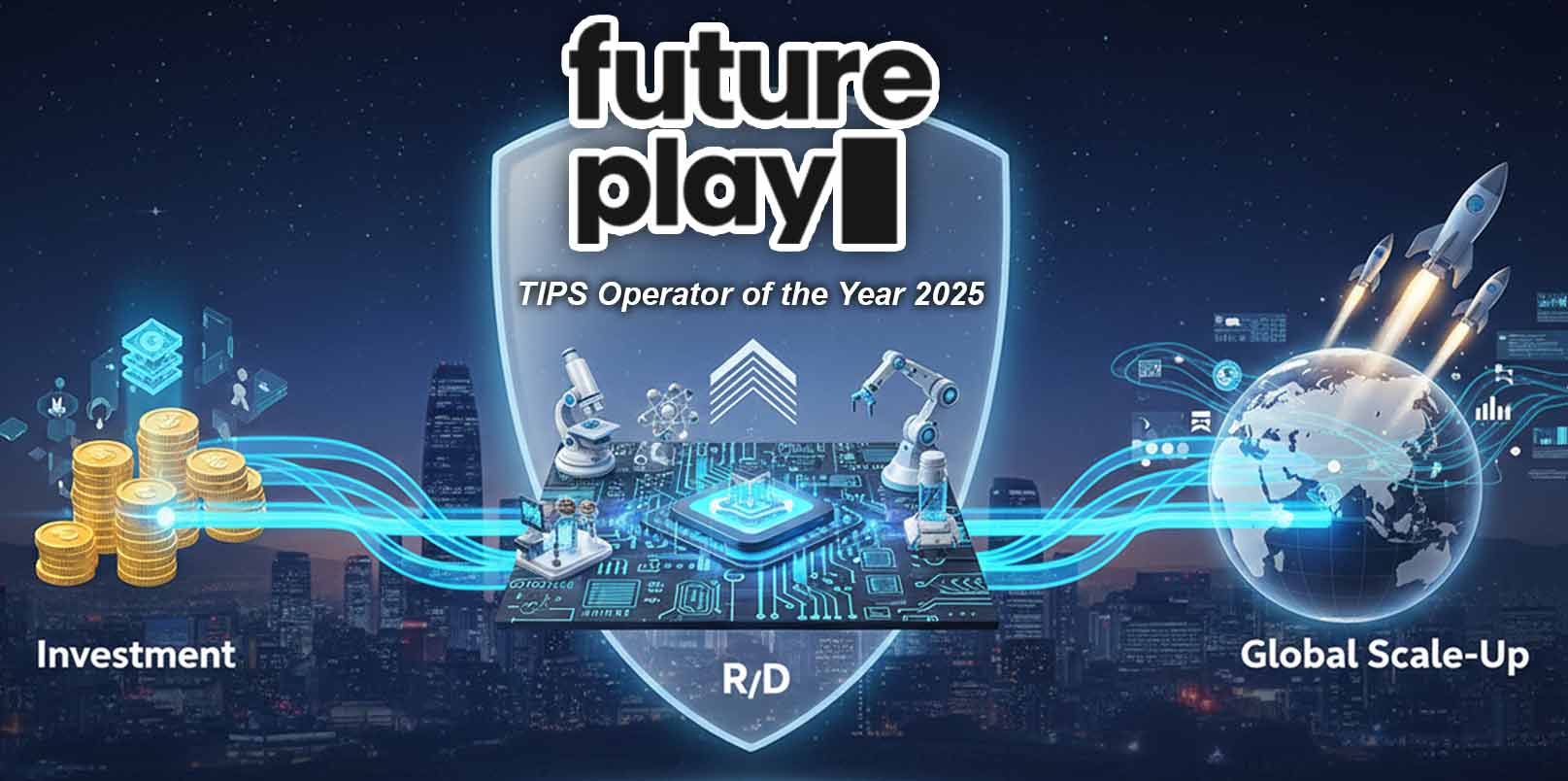Korea is pushing the boundaries of smart city innovation beyond its major hubs. In Cheonan, a new open innovation initiative is bringing startups and public institutions together to co-develop real-world solutions for urban infrastructure. This collaboration marks a key step in transforming Korea’s regional cities into living testbeds for smart technologies that can scale globally.
Public–Startup Collaboration Accelerates Smart City Development
Korea is taking a new step in integrating innovation into city infrastructure. The Chungnam Center for Creative Economy & Innovation (CCEI) and Cheonan Urban Corporation have jointly launched the “2025 Cheonan Urban Corporation × Chungnam CCEI Nexus Connect Open Innovation Meetup Day”, an initiative designed to bring startups and public enterprises together to co-develop smart city technologies.
The program will recruit startups established within the last ten years across Korea, focusing on solutions that can enhance public infrastructure and facility management — including electrical, mechanical, and civil systems, swimming facilities, automation, recycling, cleaning, and IT-based services.
Applications will remain open until November 3, 2025.

From Testbed to Market Adoption
The Nexus Connect program operates as a public-sector open innovation platform, enabling startups to validate their technologies directly within Cheonan Urban Corporation’s public facilities. Selected participants will receive end-to-end support, including Proof of Concept (PoC) development, field demonstrations, joint commercialization, and investment linkage.
A distinctive feature of the initiative is its testbed-driven structure — startups can verify both technical feasibility and economic viability by piloting their products in real operational environments. This approach aims to shorten the gap between early-stage technology and market adoption.
A Chungnam CCEI representative stated,
“This initiative will give startups opportunities to test their technologies in public environments and build credible references, while providing Cheonan Urban Corporation with a platform to identify and validate innovative technologies centered on real-world applications.”
Driving Smart City Innovation Through Regional Partnerships
The smart city innovation program from Chungnam CCEI and Cheonan Urban Corporation aligns with Korea’s national drive to expand open innovation beyond metropolitan hubs by leveraging local public enterprises as innovation partners.
Regional centers like the Chungnam CCEI play a vital role in translating national smart city strategies into localized experimentation — supporting Korea’s transition toward data-driven, sustainable, and citizen-centered urban management.
The partnership reflects the growing importance of GovTech collaboration — where public institutions act as early adopters and validation partners for emerging technologies. Such models have gained traction across the OECD and Asia-Pacific, particularly in cities investing in AI-enabled infrastructure, energy efficiency, and smart governance.
Korean Startups Find New Growth Channels in Urban Tech
By bridging startups with public institutions, the Nexus Connect program highlights how open innovation can function as an alternative growth pathway for early-stage ventures facing market-entry barriers.
While many Korean startups focus on consumer-oriented technologies, programs like this encourage diversification into urban tech, industrial automation, and smart infrastructure, areas that align with global megatrends in climate resilience and digital transformation.
Investors gain greater visibility into validated, de-risked technologies with proven real-world applications, a key factor in post-seed investment strategies. Policymakers, meanwhile, can view it as a model of regional innovation that blends public funding efficiency with private-sector agility.
Turning Pilot Projects into Scalable Smart City Models
The success of the Cheonan Nexus Connect initiative could serve as a replicable model for other municipalities aiming to integrate startups into urban development.
As Korea continues its push toward AI-integrated, data-driven cities, collaboration between regional public corporations and technology startups is expected to become a core strategy in building next-generation urban ecosystems.
If effectively scaled, such programs may not only accelerate Korea’s domestic smart city transition but also strengthen its position as a global exporter of urban innovation frameworks, particularly across Southeast Asia and the Middle East — regions actively investing in smart infrastructure and governance modernization.
– Stay Ahead in Korea’s Startup Scene –
Get real-time insights, funding updates, and policy shifts shaping Korea’s innovation ecosystem.
➡️ Follow KoreaTechDesk on LinkedIn, X (Twitter), Threads, Bluesky, Telegram, Facebook, and WhatsApp Channel.






